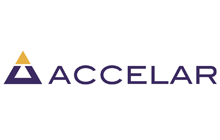Introducing… Project 2. The second of three analytical consortium projects here at TIES Living Lab. This project is managed by Lamine Mahdjoubi of University of the West of England.
Accelar Limited is the environment lead on the analytical consortium. They focus on four themes within TIES Living Lab, those being carbon, circular economy, biodiversity and climate resilience. Accelar has been working with Living Lab partners to understand what data they already collect on each environmental theme and if it’s possible to create performance benchmarks from that data. They’ve also been developing a set of agreed metrics going forward to make benchmarking easier in the future and feed into Project 1 – Metrics, Benchmarking & Repository and Project 8 – Intelligent Infrastructure Control Centre. Accelar has been analysing the TIES Living Lab data that we have to understand drivers of performance. They’re also looking to see how partners could collect data better in the future to enable more effective benchmarking. To achieve these objectives, Accelar facilitates a community of practice for each of the environmental themes, engaging with relevant subject matter experts from Network Rail, Transport for London, National Highways, HS2 and East West Rail. Accelar is working with our colleagues across the analytical consortium to understand and promote the smarter use of data and benchmarking across the life cycle of constriction projects, addressing productivity, decarbonisation, environmental and social value improvements alongside the traditional aspects (e.g. cost, quality and schedule).
Project Objectives:
- Build a data pre-processing pipeline to gather and prepare cost data for further analysis using Artificial Intelligence (AI), including machine learning techniques
- Develop and train an array of AI techniques to classify cost data descriptions into a common standard
- Carry our iterative testing of the accuracy of the classification obtained from the AI system and feed the information back into it in an ongoing learning process
- Develop the approach into a semi-automated system for extraction, identification, translation and mapping of cost related data into a standardised schema for further benchmarking analysis, for example, International Cost Management Standard
Project Outcomes:
- Tested semi-automated AI systems for mining cost data (i.e. cost data extraction, identification, translation and mapping into standardised schema).
- Deliver cost and quantity data classified in an agreed common standard (e.g. ICMS or other standards appropriate for the emerging data) for use in Project 3 for benchmarking analysis to support decision making


